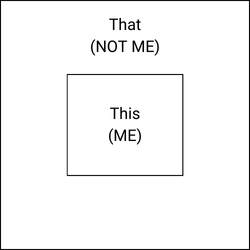Realizing the Four Games: A New Framework for Personal Empowerment
In the book "A Course in Freedom: The Drunken Monkey Speaks" by Lawrence Lanoff, the concept of the "four buckets of mythology" is introduced. I now refer to these as the four games we play in human existence – “Games” for short. These games serve as a framework for understanding the different paradigms through which we perceive and interact with the world. Here’s a rundown of these four games and how they can help you call in your creatorship:
Game One: Duality
This is the game of "this or that." As soon as we label something, its opposite is implied. For example, labeling an experience as one of anxiety implies the existence of a state that is not anxious. This dualistic thinking is foundational, as it frames much of our everyday experience in terms of opposites. Understanding and recognizing when we are playing this game allows us to choose our reactions and perceptions more consciously.
Game Two: Morality
When we play Game One in the boxes of “right” and “wrong”, we now introduce morality. This game dictates that there is a correct way to do things and deviations from this way are punished, sometimes severely. Historical examples include witch hunts and the death penalty. Morality-based thinking often stems from religious or cultural norms, and it can impose harsh consequences on those who do not conform. Morality introduces judgments of right and wrong, often leading to shame and guilt. Recognizing when we are in this game can help us question the validity of these moral judgments and reduce feelings of shame and guilt.
Game Three: Oneness
The game of oneness encompasses the idea that everything is interconnected. For some, this may be a spiritual belief in the divine presence in all things; for others, it may be a more secular acknowledgment of we came from nothing we go back to nothing (nothing aka no thing is still one thing). While oneness can foster a sense of unity and peace, it can also be misapplied to dismiss real human experiences and emotions, such as grief or anger. Awareness of this game allows us to appreciate interconnectedness without losing touch with individual experiences.
Game Four: Perceived Objectivity
This game is about the belief in objective truths, often represented by scientific consensus. While scientific understanding provides us with useful and reliable knowledge, it is also subject to change. What is considered a fact today may be revised or disproven tomorrow. Recognizing the provisional nature of scientific knowledge can help us remain open-minded and adaptable.
Practical Applications and Empowerment
The essence of this framework lies in becoming aware of the games we are playing at any given moment. This awareness empowers us to consciously choose how we want to create our experiences. For example, if you recognize that you are playing the game of anger (Game One), you can question whether this is what you want to create and shift towards a more desired state, such as peace or joy. Another factor that is often at play is while we may realize we’re in Game One consciously, we may not realize we’re possibly in Game Two. When we experience anger, and we don’t want to, people often categorize anger as “bad.” Anger isn’t inherently bad. We’re moralizing our emotions, something that is part of the human experience and adding a level of stress to an already trying time. The more we become aware of being in Game Two, the more we can stop moralizing our humanity and start creating conscious games.
The Role of Awareness
Awareness is the key to empowerment. By understanding which game we are engaged in, we can take responsibility for our emotional states and actions. This practice resembles mindfulness, where we bring conscious attention to our thoughts and feelings, enabling us to respond rather than react.
Consider the example of anger. Unconscious anger is anger we haven’t mastered yet—it controls us, rather than us controlling it. When we fall victim to our emotions, feeling powerless to stop them, we aren't standing in our power, leading to internal turmoil and external conflict. This lack of control often makes people fear anger due to its unpredictability.
However, when we step into anger with awareness, choosing our words and actions from a place of self-love, anger can serve us. We can communicate deliberately and thoughtfully, ensuring our points are made without causing harm to ourselves or others. This conscious approach transforms anger into a tool for self-advocacy, allowing us to be heard and understood, rather than feared and ignored.
Integrating the Games in Coaching
As a coach, using this framework can help clients identify the games they are playing and choose how they want to engage with their experiences. This approach encourages clients to take ownership of their emotions and actions, fostering a sense of agency and empowerment. For instance, when a client feels overwhelmed with guilt, recognizing that they are playing the game of morality (Game Two) can help them reframe their perspective and alleviate some of that guilt.
Embracing Change
One of the critical insights from Game Four is the understanding that change is the only constant. Just as scientific facts can evolve, so too can our perceptions and beliefs. Embracing this fluidity allows us to remain flexible and resilient in the face of life's uncertainties. It doesn’t mean change will feel better, but it does mean you can get out of feeling like life is controlling you and instead feel like it’s a welcomed co-creation.
Conclusion
The Four Games of duality, morality, oneness, and perceived objectivity provide a powerful lens through which to understand and navigate our experiences. By becoming aware of these games, we can consciously choose how we want to engage with the world, leading to greater personal empowerment and a more intentional life.


